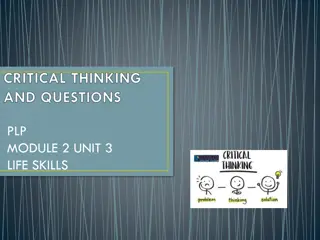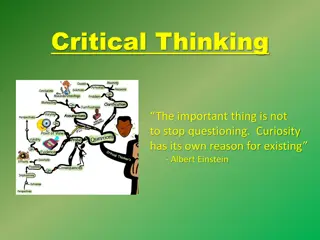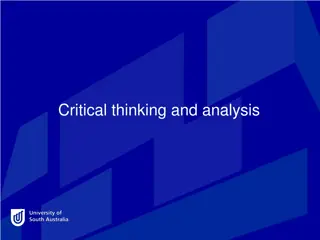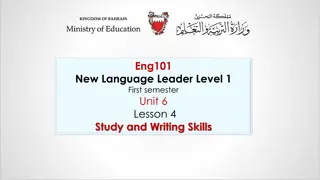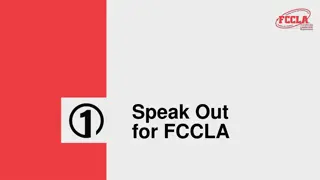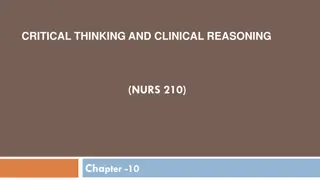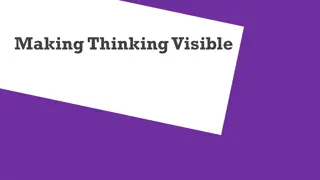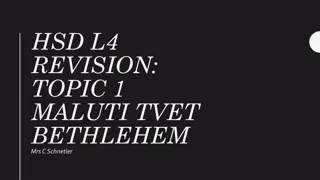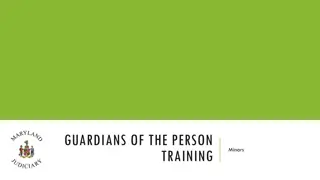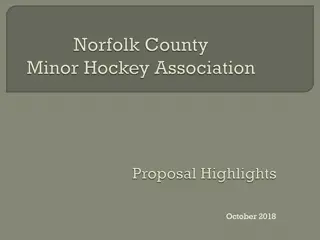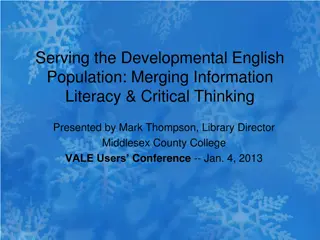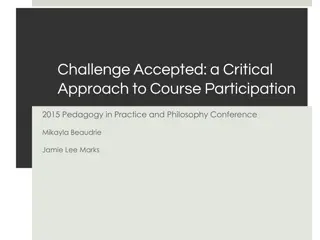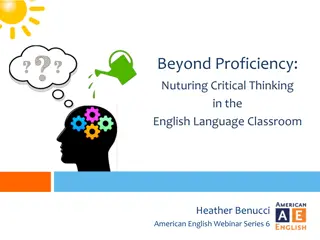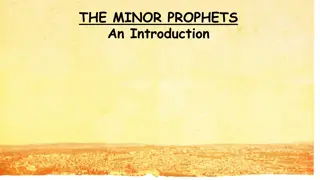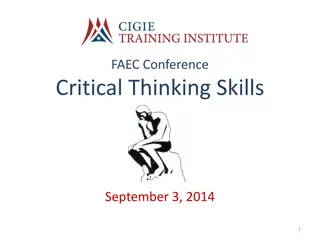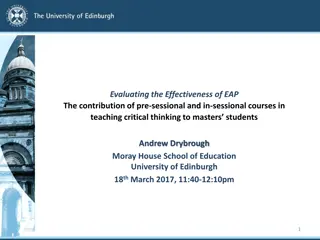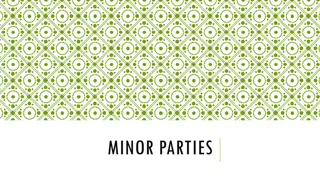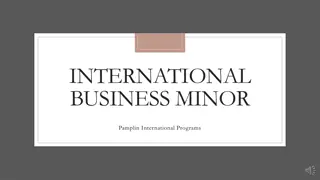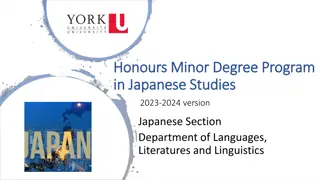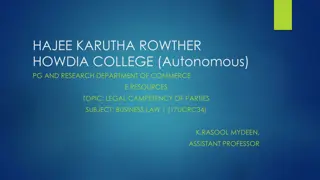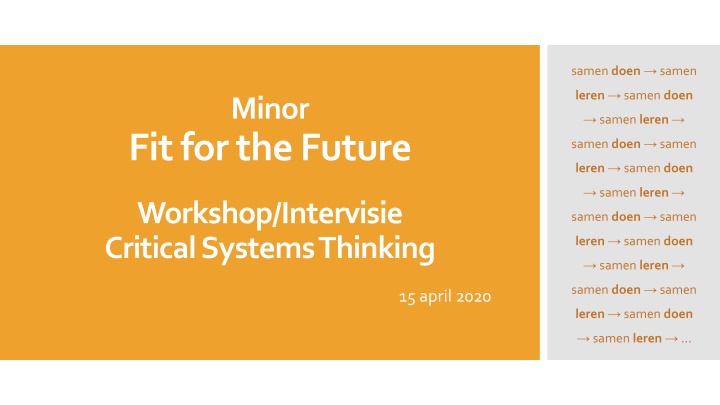
Facilitator of Change: Developing Strategic Interventions for Transitions
A Facilitator of Change understands stakeholders' perspectives, aims to create strategic interventions for sustainable transitions, and possesses competencies like critical reflection, systems thinking, and conceptual understanding. The approach involves an content-driven process, focusing on ethical principles, dialogue with stakeholders, and the exploration of complex relationships.
Download Presentation

Please find below an Image/Link to download the presentation.
The content on the website is provided AS IS for your information and personal use only. It may not be sold, licensed, or shared on other websites without obtaining consent from the author. If you encounter any issues during the download, it is possible that the publisher has removed the file from their server.
You are allowed to download the files provided on this website for personal or commercial use, subject to the condition that they are used lawfully. All files are the property of their respective owners.
The content on the website is provided AS IS for your information and personal use only. It may not be sold, licensed, or shared on other websites without obtaining consent from the author.
E N D
Presentation Transcript
samen doen samen leren samen doen Minor samen leren Fit for the Future samen doen samen leren samen doen samen leren Workshop/Intervisie Critical Systems Thinking samen doen samen leren samen doen samen leren samen doen samen 15 april 2020 leren samen doen samen leren
Een Facilitator of Change begrijpt de verschillende belangen en opvattingen van stakeholders gerelateerd aan wereldwijde en lokale ontwikkelingen, en is in staat om strategische interventies te ontwikkelen voor duurzame transities in de betreffende regio. Facilitator of Change
Competenties Conceptueel denken Systeemdenken, van hard via zacht naar kritisch Competenties Kritisch reflecteren Laws of Form Tweedeordeobservaties en Verbinden Relaties Ethiek Onderzoekende houding Onderzoekende houding Responsieve methodologie Reflexieve monitoring
Inhoud-gedreven proces: Project staat centraal met de eigen inbreng van de deelnemer in relatie tot anderen: samen doen, samen leren, ; Driedubbelslag: Voortgang brengen in situatie (arguably desirable, culturally feasible, 3/5 E s); Met nieuwe competenties (conceptueel (systeem-)denken, kritische reflectie, verbinden); Met (meta)reflectie, geleerde lessen; Sturen op ethische uitgangspunten (wie zijn we, wat doen we?): Verificatie validatie; Brede dialoog: Draagvlak bij belanghebbenden; Druk op democratisch proces; Doorvertaling naar afwegingskaders en leidende principes; Lawsof Form: Tweede-orde cybernetica (met rol van observer); Autopoiese (zef-productie, Luhmann); Tweede-orde observaties, kritische reflectie; Ethicsof care. Rode draden
Iets uit niets Some-Thing No-Thing
The circle makes a distinction in the plane. We make a distinction in the plane by drawing a circle. Circle and observer arise together in the act of perceiving. That circle, this observer, and the distinction that arises are one. The Form we take to exist arises from framing nothing. Distinction is perfect continence By starting in unity we make imaginary complexity, related to the original unity. Every distinction is inherently a process, and the structure of our world as a whole comes from the relationships whose exploration constitutes that world. It is a reflexive domain there is no place to hide, no irreducible object. Any given entity acquires its properties through its relationships with everything else.
Self-reference An unconscious reference to one s own cultural values, experiences and knowledge as a basis for decisions.
Embrace the paradox, i.e., a difference in what was previously stated and therefore contradicting what was said before. Principe: Differences keep setting things in motion. Without differences we cease to exist. Omarm de paradox Therefore, change is inevitable, in fact, it is a necessity for living.
Necker cube Blind spot Rubin vase
Principe A constructive dialog can take place on the basis of first and second order boundary judgments. Dialoog en Grensoordelen

